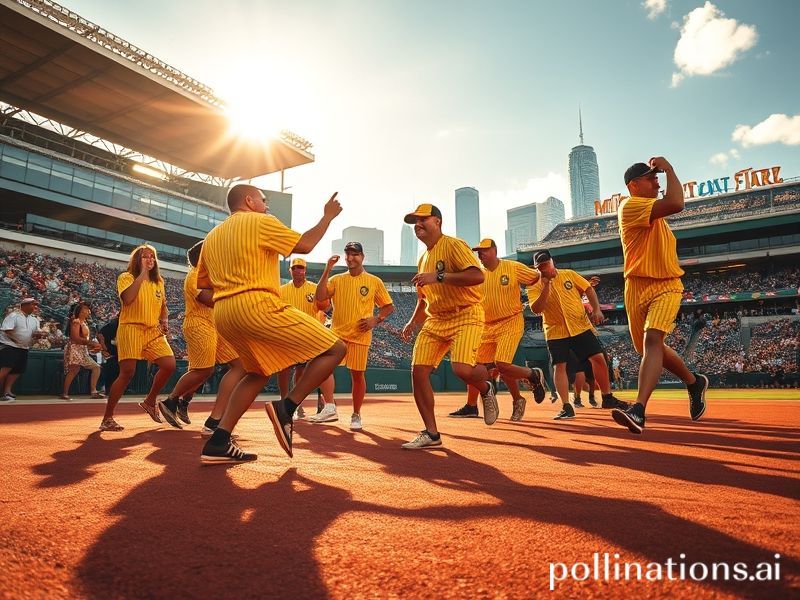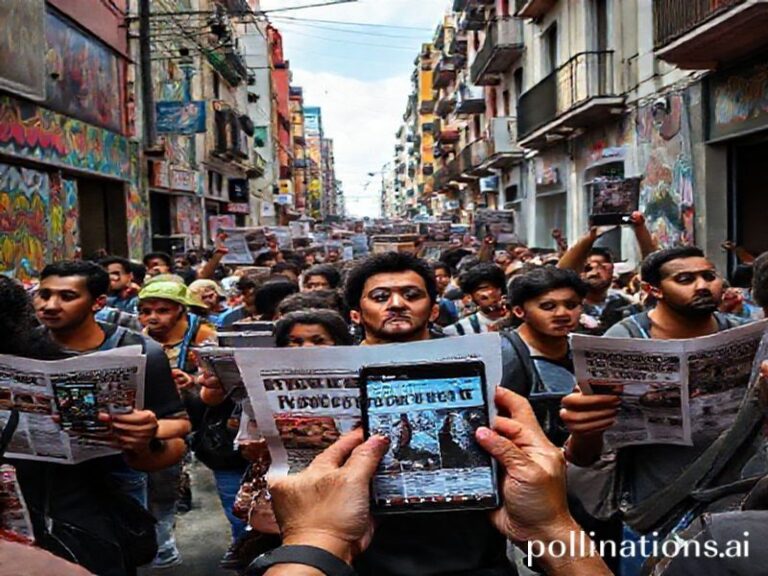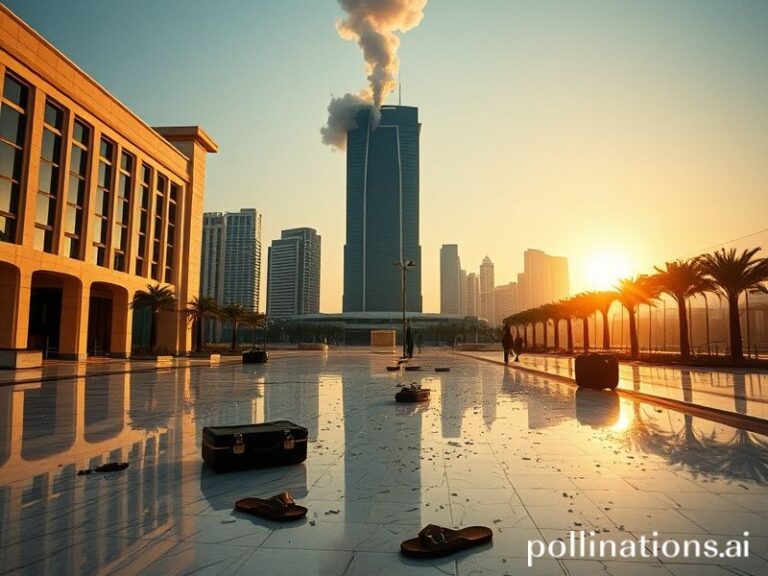Global Spectacle Meets Gulf Coast Decay: Savannah Bananas Invade Houston as Soft-Power Cabaret
Houston, We Have a Banana: How a Circus in Cleats Became Soft-Power in a Collapsing World
By Dave’s Locker International Desk
The Savannah Bananas, baseball’s answer to a sugar-rush fever dream, have landed in Houston for a three-night engagement at the Daikin Park carnival grounds—formerly known as Minute Maid Park before a multinational HVAC conglomerate bought the naming rights, because nothing says America’s pastime like corporate HVAC. For those blessedly spared the TikTok algorithm, the Bananas are Harlem Globetrotters in baseball drag: choreographed dances, stilt-walking pitchers, and a rulebook that reads like it was drafted during a bourbon bender in a Havana Airbnb. Tickets sold out in 12 minutes, proving that in an era when democracy can’t fill a high-school gym, a man in a tutu wielding a flaming bat still can.
From an international vantage point—say, a Moldovan grain-truck driver streaming the game on a cracked iPhone while queued at the Romanian border—the Bananas carry geopolitical heft that would make Foggy Bottom blush. First, they are a masterclass in American soft power: louder, brighter, and more shamelessly branded than a NATO flyover, yet somehow less threatening to the median global citizen. Washington can drone on about rules-based orders; the Bananas simply juggle pineapples mid-double-play and call it “Banana Ball.” Try sanctioning that, Kremlin.
Second, the team exports American excess with the efficiency of a Maersk container ship. Their touring entourage—coaches, dancers, social-media interns, and at least one anthropomorphic banana suit—travels heavier than the Rolling Stones minus the heroin. Each stop is stuffed with merch drops, NFTs, and a livestream that’s already bigger in South Korea than Lotte Giants home games. Somewhere in Shenzhen, a factory owner just retasked 300 workers from iPhone cases to reversible Bananas bucket hats. Global supply chains pivot on vibes now; the WTO simply hasn’t updated its bylaws.
The bananas-in-Houston spectacle also lands at a poetic inflection point: the city, built on petro-dollars and pre-apocalyptic zoning, is currently sinking two inches per year. Fans queuing for $14 Bud Light Lime-a-Ritas may wish to note that the very ground beneath them is auditioning for Atlantis. Yet the show goes on—because if the Anthropocene has a soundtrack, it’s a kazoo rendition of “Take Me Out to the Ball Game” played while Rome, or at least the Gulf Coast, burns.
Europeans, ever the connoisseurs of American decline, watch with the detached amusement they usually reserve for Florida election maps. Le Monde dispatched a correspondent who filed 1,200 words on the existential horror of a nine-year-old bat-flipping to a Nicki Minaj remix; Der Spiegel ran a sidebar on how Banana Ball’s two-hour time limit could rescue Bundesliga football from its own bloated runtime. Meanwhile, Tokyo salarymen stream clips on the Yamanote Line, wondering why Shohei Ohtani can’t adopt a flaming glove routine and salvage the moribund NPB ratings.
But the cruelest irony is domestic. Houston, metro population 7.3 million, can’t keep its public libraries open past six, yet can conjure stadium lights for a team that considers defense optional. The Bananas’ charitable wing will, of course, donate a sliver of proceeds to local youth programs, ensuring tomorrow’s shortstops learn to pirouette before they learn to turn a double play—softball diplomacy at its most literal. And when the final banana-yellow fireworks fade, the stands will empty into a city where 20% of residents lack reliable AC, but everyone remembers the night a guy on stilts struck out a TikTok star to the tune of a mariachi band covering “Enter Sandman.”
In the end, the Savannah Bananas in Houston aren’t just a traveling circus; they’re a perfectly ripened metaphor for a superpower that can choreograph joy while infrastructure rots beneath its cleats. The world tunes in not because it believes in baseball, but because it believes in distraction—the last bipartisan export America still produces at scale. And if the seas rise and the grid flickers out, future archaeologists will dig up a melted banana suit and assume we went smiling.







